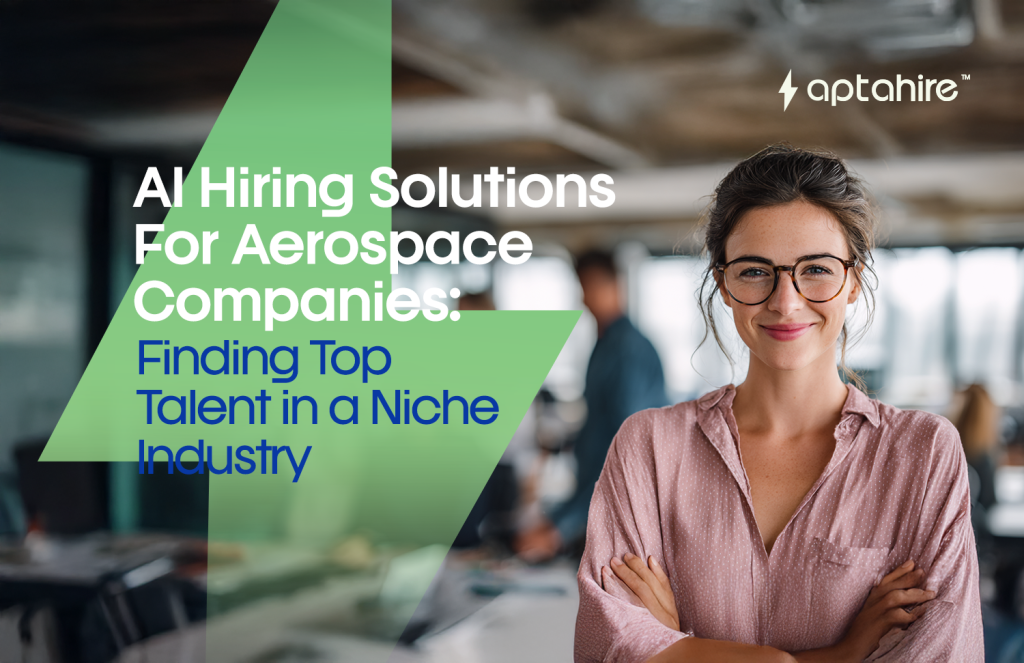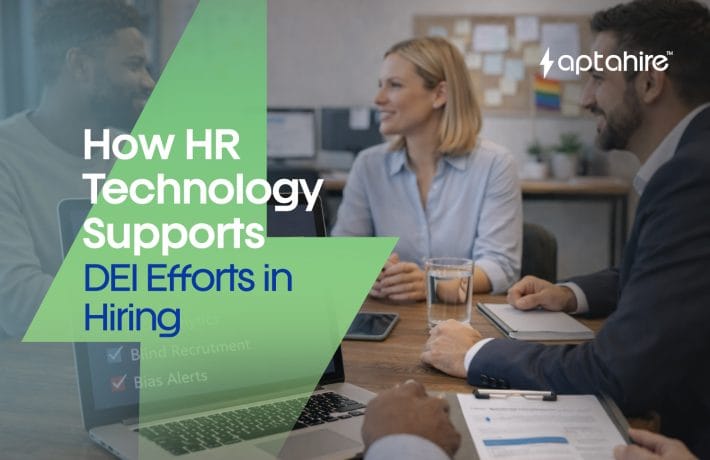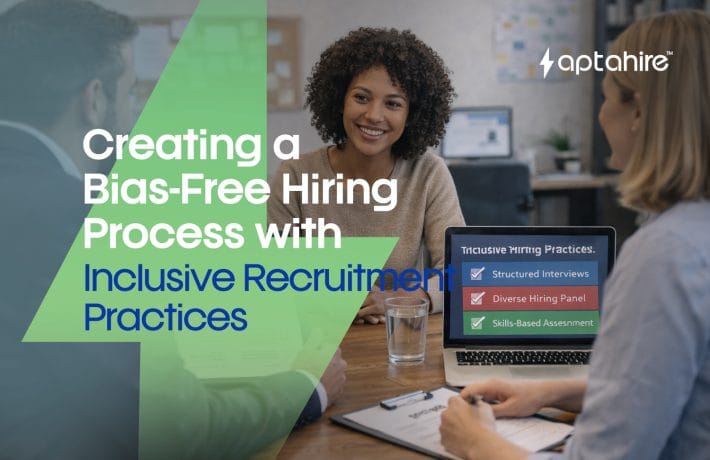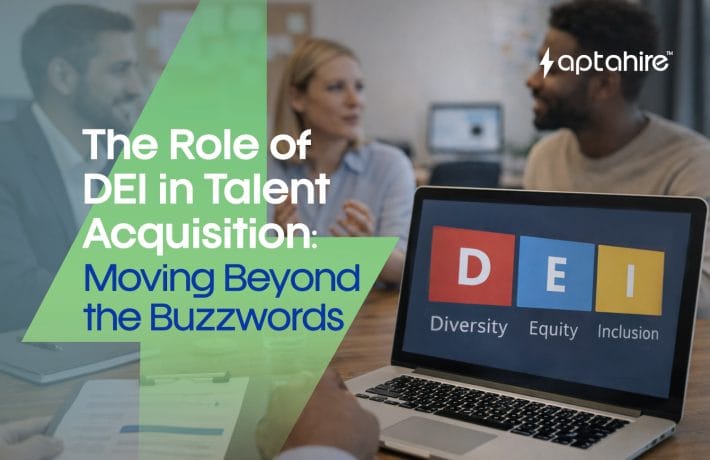AI Hiring Solutions for Aerospace Companies: Finding Top Talent in a Niche Industry

Introduction: A New Era in Aerospace Recruitment
As you all know, hiring in the aerospace industry isn’t easy. Between the need for highly specialized skills, security clearances, and rigorous technical standards, finding the right candidate can feel like searching for a needle in a supersonic haystack.
But what if there was a smarter, faster, and more precise way to find the right talent?
Enter AI hiring solutions, a game-changer in recruitment, especially for niche industries like aerospace. Whether you’re hiring for roles in avionics, propulsion systems, or aerospace R&D, AI is helping companies unlock talent pools that were once hard to access, all while saving time and improving accuracy.
Let’s explore into how AI is reshaping aerospace recruitment and helping companies find their next top engineer, scientist, or analyst with ease.
The Challenge: Hiring in a High-Stakes, High-Skill Industry
Aerospace is one of the most complex and regulated industries in the world. With national security, safety, and innovation at stake, hiring mistakes aren’t just expensive, they can be dangerous.
Here are some unique challenges aerospace companies face:
- Niche skill sets like computational fluid dynamics, materials science, or flight control systems.
- Security clearance requirements, especially in defense and government contracting.
- Aging workforce, with many experienced engineers nearing retirement.
- Global competition for top-tier aerospace talent.
- Long hiring cycles due to layers of interviews, testing, and background checks.
AI hiring is proving to be the much-needed solution to streamline this highly complex process.
How AI Hiring Tools Are Solving Aerospace Recruitment Challenges
1. Smarter Candidate Sourcing
Traditional sourcing methods often miss qualified candidates. AI platforms can scan millions of resumes across multiple databases, match profiles with exact skill requirements, and even consider transferable skills. This ensures you’re not just hiring the most obvious choice, but the best one.
Example: A large aerospace firm used AI to find candidates with military avionics experience by analyzing resume patterns and career histories, even when the job titles didn’t match exactly. The result? A 35% faster time-to-hire.
2. Automated Resume Screening
AI tools can filter thousands of resumes in minutes, prioritizing candidates with the right certifications, education, and experience. They use NLP (Natural Language Processing) to go beyond keyword-matching and actually understand the context.
3. Behavioral and Technical Assessments
With AI-driven pre-screening assessments, aerospace firms can now evaluate candidates’ technical knowledge (CAD software, simulation tools, etc.) and behavioral traits (problem-solving, adaptability) before the first interview even begins.
4. Reducing Unconscious Bias
Diversity matters, especially in a global, innovative field like aerospace. AI helps eliminate unconscious human bias by focusing purely on data-driven evaluations, not names, photos, or backgrounds.
5. Interview Automation with Video AI
AI hiring platforms like HireVue and Modern Hire use video interviews paired with AI to analyze body language, tone, and content. This helps HR and engineering leads assess a candidate’s confidence, honesty, and communication, key for high-stakes roles.
Why AI Works So Well for Aerospace Recruitment
Let’s break it down. AI is especially useful in the aerospace sector for three major reasons:
- Precision hiring: AI finds people with exact certifications like PMP, FAA ratings, or NASA standards knowledge.
- Speed and scale: Reduce months-long hiring processes to weeks.
- Security and compliance: AI can cross-check against compliance databases to ensure faster vetting for defense-related positions.
Real-World Example: Boeing’s Use of AI in Talent Acquisition
Boeing, one of the world’s aerospace giants, has started leveraging AI tools to enhance recruitment. Their AI models help sift through internal and external candidate pools to match roles more intelligently, especially in emerging tech areas like autonomous flight and sustainable aviation.
The result? Reduced hiring costs, shorter recruitment cycles, and better retention.
The Human + AI Approach
AI doesn’t replace recruiters, it amplifies them. Human recruiters still bring in the emotional intelligence, relationship-building, and final decision-making. AI just does the heavy lifting; sourcing, screening, and ranking candidates faster and better.
Think of it this way:
AI = Co-pilot
The recruiter = Captain of the hiring journey.
What to Look for in an AI Hiring Platform for Aerospace
If you’re considering integrating AI into your aerospace hiring process, make sure the platform includes:
- Advanced parsing & contextual resume matching
- Skills mapping based on niche aerospace roles
- Pre-built assessment templates for engineering, aviation, etc.
- Secure compliance and data protection protocols
- Integrations with your existing ATS or HRIS
Top AI hiring tools used in aerospace include Eightfold.ai, SeekOut, Pymetrics, HireVue, and Manatal.
Final Thoughts: Soaring Higher with AI
The aerospace industry is evolving fast, with advances in space exploration, drones, and defense tech pushing the boundaries of what’s possible.
To keep up, companies need top talent, and they need it fast.
AI hiring isn’t just a nice-to-have; it’s a strategic advantage. From pinpointing the right candidates to ensuring compliance and reducing bias, AI empowers aerospace HR teams to recruit smarter and faster.
So, whether you’re building the next Mars rover or upgrading commercial jetliners, make AI your first step toward building the dream team.
If you’d like me to create a shorter version of this blog for LinkedIn or email newsletters, just say the word!
FAQs
1. Why is AI hiring important for aerospace companies?
AI helps aerospace companies identify highly skilled and specialized candidates quickly by analyzing large datasets. It speeds up recruitment, reduces bias, and ensures only the most qualified candidates are shortlisted, essential in a precision-driven industry like aerospace.
2. How does AI improve candidate screening in aerospace hiring?
AI scans resumes for relevant skills, certifications (like FAA or EASA licenses), and niche experience (e.g., avionics or propulsion systems), ensuring only top-tier talent is selected. This reduces human error and saves valuable time in screening.
3. Can AI handle compliance and security screening in aerospace recruitment?
Yes, AI tools can be integrated with compliance databases to ensure candidates meet industry regulations and security clearance requirements. This is especially critical in defense and aerospace roles involving sensitive technologies.
4. How does AI ensure a better fit between candidates and aerospace roles?
AI uses predictive analytics to match candidates based on not just skills, but also past performance, behavior, and cultural fit, crucial in high-stakes, team-based environments like aerospace engineering or aircraft design.
5. What roles in aerospace can benefit the most from AI hiring?
Positions like aerospace engineers, systems analysts, drone pilots, R&D specialists, and satellite tech engineers benefit the most, especially when hiring requires deep technical skill and experience in emerging technologies.
6. Can AI reduce unconscious bias in aerospace hiring?
Absolutely. AI can anonymize applications and focus purely on merit-based metrics, such as skills, experience, and performance, helping create a more diverse and inclusive hiring pipeline in an industry that needs it.
7. Is AI hiring suitable for entry-level or internship roles in aerospace?
Yes, AI can analyze university programs, grades, project experience, and even social or GitHub activity to identify top emerging talent, making it ideal for graduate hiring programs or internships.
8. How fast can AI speed up the hiring process for aerospace companies?
AI can cut the hiring time by up to 40–60% by automating resume screening, matching, scheduling, and even conducting preliminary assessments, allowing recruiters to focus on final selection and onboarding.
9. Are aerospace recruiters replacing humans with AI completely?
No. AI is used to assist, not replace. It handles the heavy lifting like filtering, ranking, and scheduling, while human recruiters still manage the interviews, relationship-building, and final decisions.
10. What’s the ROI of using AI for hiring in aerospace?
AI hiring can significantly reduce cost-per-hire, time-to-hire, and turnover rates, while improving candidate quality and job fit. This leads to higher productivity, reduced training costs, and better team performance in critical aerospace projects.



